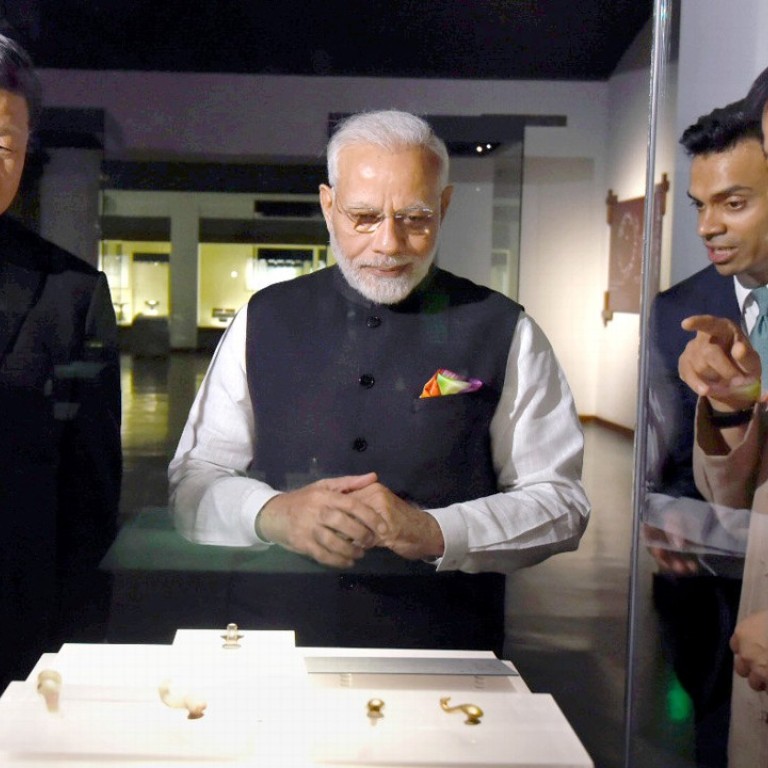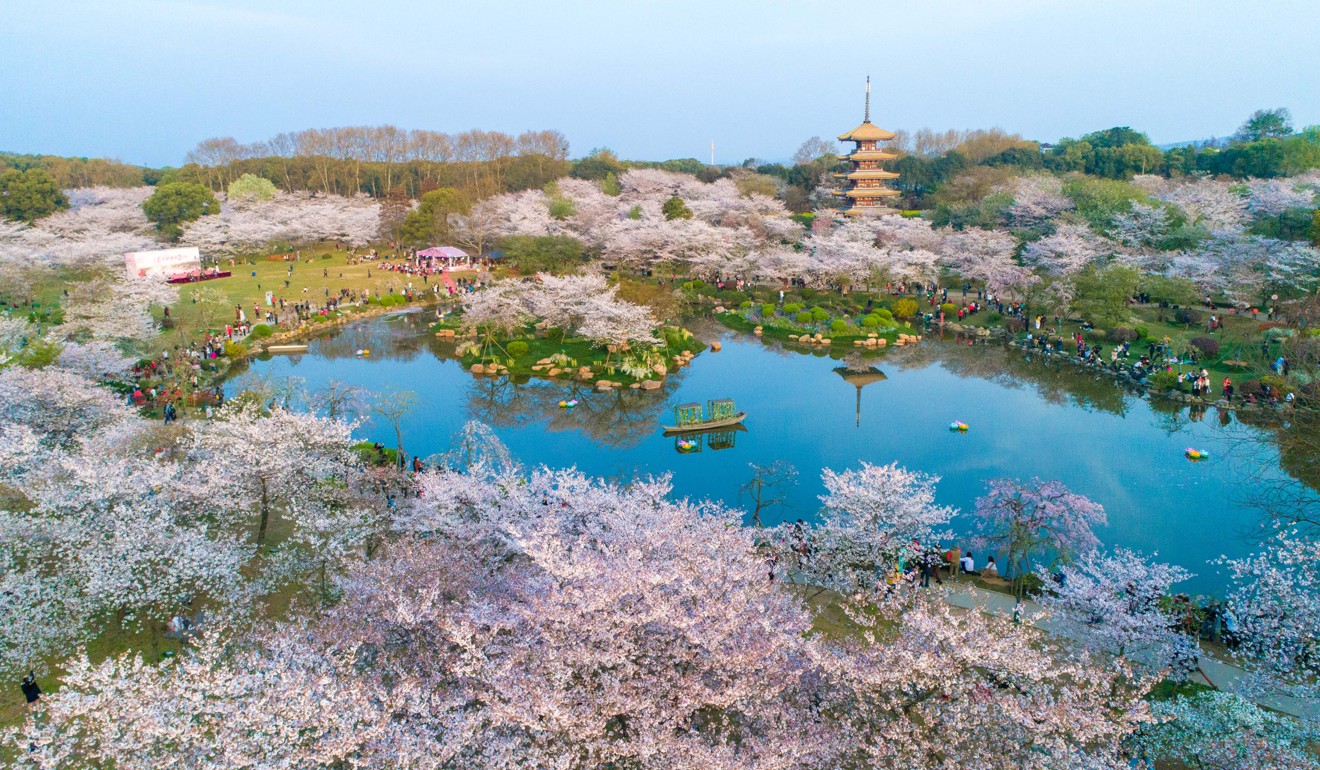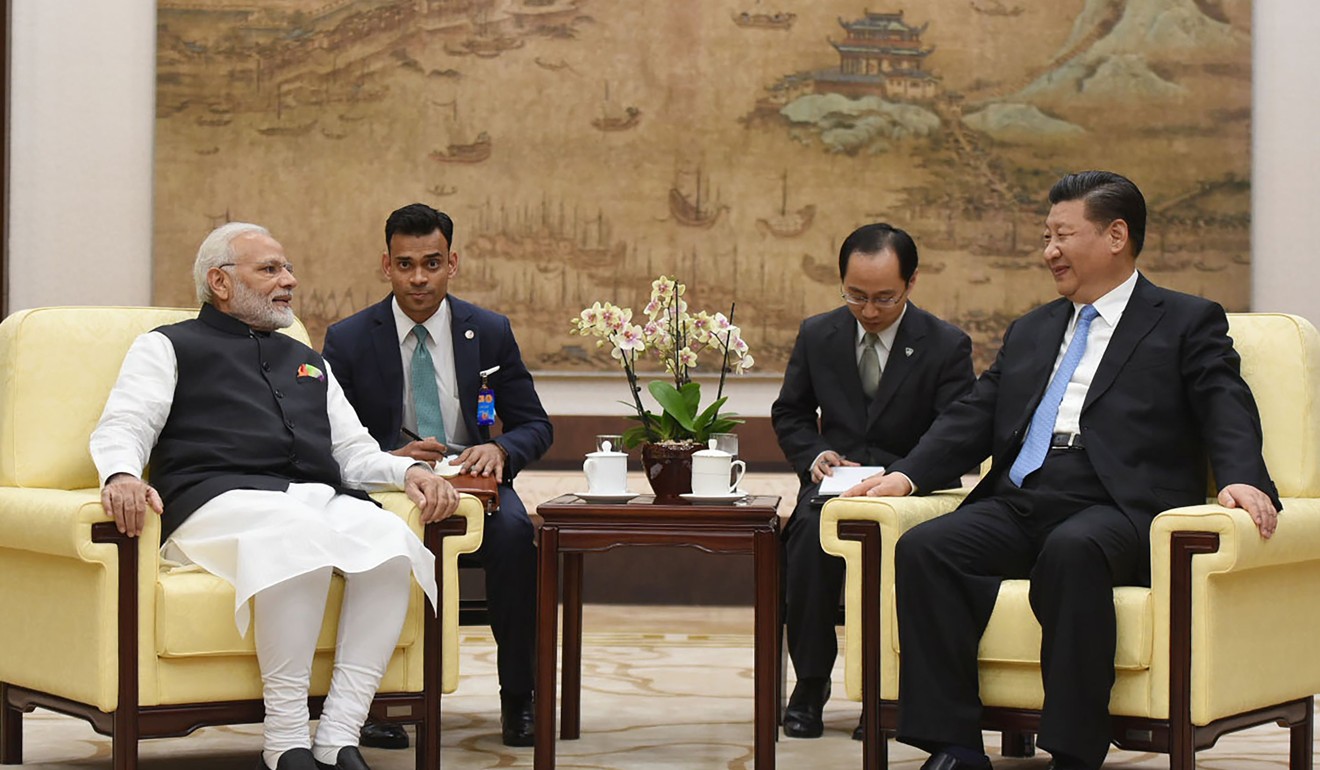
Indian Prime Minister Narendra Modi sounds upbeat note on China ties at ‘informal’ summit with Xi Jinping
Two leaders stress close personal relationship as they seek to mend relations following last summer’s Doklam stand-off
India’s Prime Minister Narendra Modi said on Friday that China and India had plenty of opportunities to work together as he arrived in China for a visit intended to reset ties between the two nations after last year’s border stand-off.
Modi began his two-day informal visit in Wuhan, capital of Hubei province, where he was given a museum tour and private dinner and held at least six meeting with President Xi Jinping.
Both sides have made it clear that the meetings were designed to improve relations following the 72-day Doklam confrontation last summer.
The summit continues a thaw that began with the end of the stand-off and Modi’s attendance at a summit in the southern Chinese city of Xiamen in September.
Friday’s visit began with the two leaders watching a Chinese dance performance before touring the Hubei provincial museum to view ancient Chinese artefacts.
They then began their round of talks with a 40-minute discussion before moving on to the East Lake Guesthouse, a favourite retreat of Mao Zedong, where they were joined by other delegates.
In their first meeting, Xi said that the two countries “have established a closer partnership” over the past five years, according to state-run CCTV, adding that he looked forward to “in-depth communication”.
Meanwhile, Modi also appeared keen to play up his personal connection to Xi. The Hindu reported that he told the Chinese leader: “I am perhaps the first Prime Minister of India for whom you have come out of the capital twice to receive me” – a statement harking back to a meeting between the pair in Xi’s hometown in Xian province in 2015.

On Saturday, the two are due to take a walk around the banks of the East Lake before heading out for an hour-long boat trip followed by lunch at the guest house.
Many of their meeting were planned to be one-on-ones, where only the two leaders and their interpreters were present.
China’s Vice Foreign Minister Kong Xuanyou said on Thursday that these “heart-to-heart discussions” would allow the two to discuss the overarching issues and try to build mutual trust to resolve their outstanding differences.
But these differences continue to stand in the way of efforts to improve their relations.
Apart from their long-standing border disputes, India has officially criticised aspects of China’s Belt and Road Initiative, which involves a number of infrastructure projects around the Indian Ocean – an area it views as its backyard.
A particular bone of contention is the China-Pakistan Economic Corridor that passes through the Pakistani-controlled part of Kashmir, which India insists is its own territory.

Relations between Delhi and Washington have also improved in recent years, with America seeing India as the key to its Indo-Pacific strategy for containing China’s influence in region.
But Swaran Singh, a professor at the school of international studies at Jawaharlal Nehru University in New Delhi, said America’s recent swing towards protectionism would harm both India and China.
“India and China will open all avenues for themselves now,” Singh said.
Ahead of the meeting, China’s Ministry of Commerce announced that investments in India had passed the US$8 billion mark by the end of 2017, also noting that trade between the two had risen by 15.4 per cent in the first quarter of the year, reaching US$22.1 billion.
Singh also said that the two leaders had developed a new, more informal, style for their exchanges, and on Friday Modi invited Xi to an “informal summit in India” next year.
“This has fundamentally signalled a new start for China-India relations,” Singh added. “The two leaders have developed enough chemistry for them to be confident to be together for two days with many private talks.”

